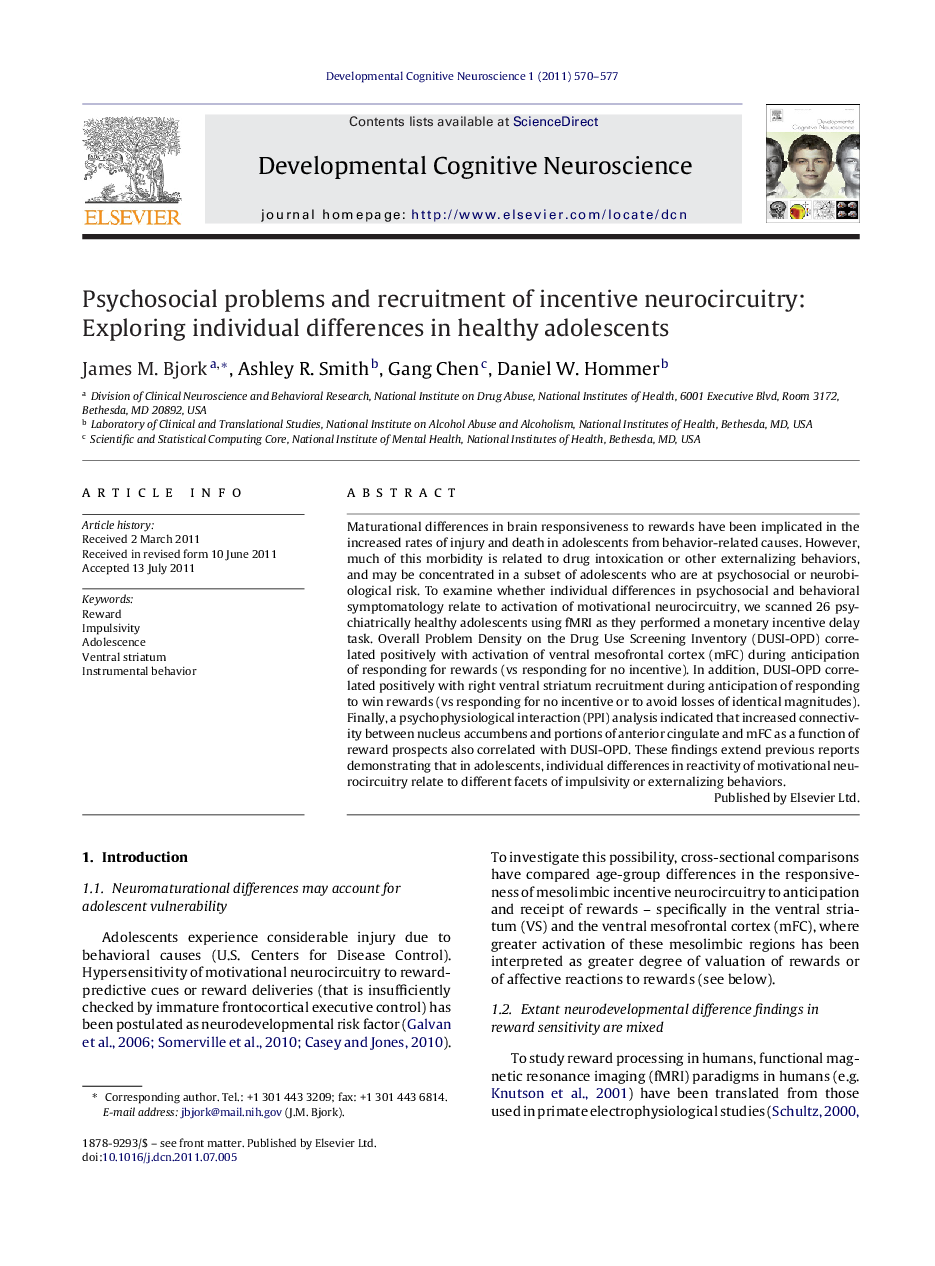| Article ID | Journal | Published Year | Pages | File Type |
|---|---|---|---|---|
| 4316733 | Developmental Cognitive Neuroscience | 2011 | 8 Pages |
ABSTRACTMaturational differences in brain responsiveness to rewards have been implicated in the increased rates of injury and death in adolescents from behavior-related causes. However, much of this morbidity is related to drug intoxication or other externalizing behaviors, and may be concentrated in a subset of adolescents who are at psychosocial or neurobiological risk. To examine whether individual differences in psychosocial and behavioral symptomatology relate to activation of motivational neurocircuitry, we scanned 26 psychiatrically healthy adolescents using fMRI as they performed a monetary incentive delay task. Overall Problem Density on the Drug Use Screening Inventory (DUSI-OPD) correlated positively with activation of ventral mesofrontal cortex (mFC) during anticipation of responding for rewards (vs responding for no incentive). In addition, DUSI-OPD correlated positively with right ventral striatum recruitment during anticipation of responding to win rewards (vs responding for no incentive or to avoid losses of identical magnitudes). Finally, a psychophysiological interaction (PPI) analysis indicated that increased connectivity between nucleus accumbens and portions of anterior cingulate and mFC as a function of reward prospects also correlated with DUSI-OPD. These findings extend previous reports demonstrating that in adolescents, individual differences in reactivity of motivational neurocircuitry relate to different facets of impulsivity or externalizing behaviors.
